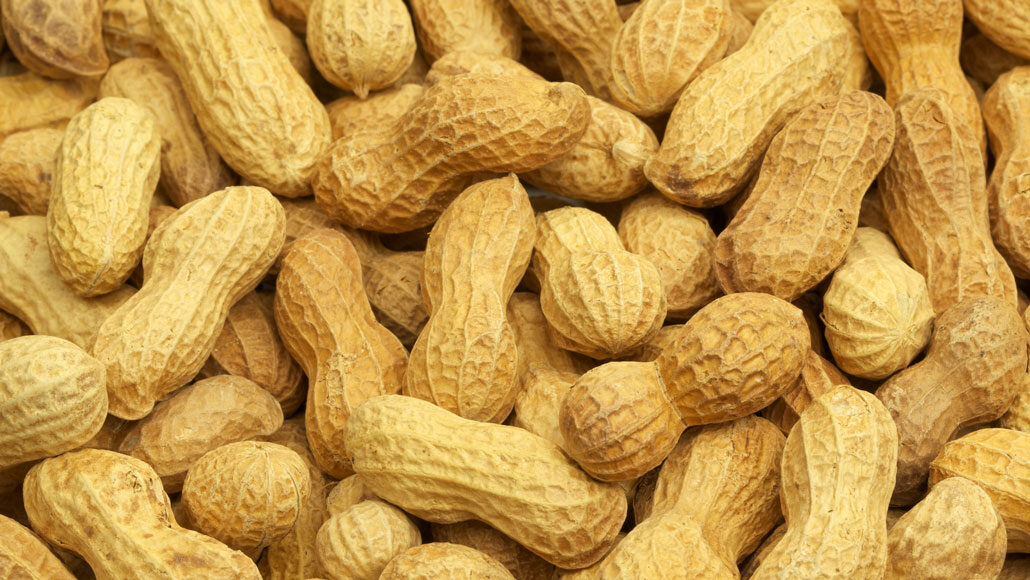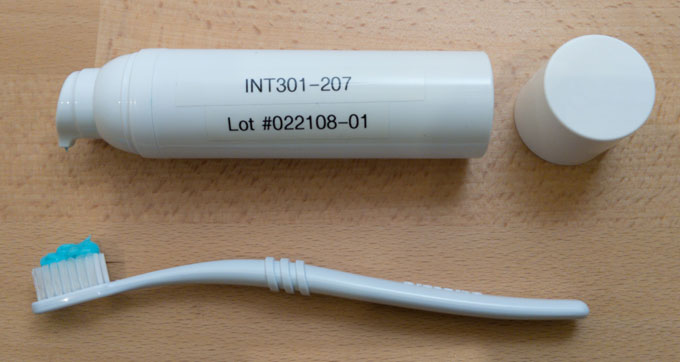Could a toothpaste help treat peanut allergy?
Tests are starting on a product that could help make this therapy part of a daily routine

A New York City–based company is testing whether a new toothpaste can help protect people from their peanut allergies.
Nancy C. Ross/E+/Getty Images Plus
It may one day be possible for people to treat food allergies by simply brushing their teeth. A New York City–based company has launched a trial of a product to do that it in a small group of adults. All are allergic to peanuts. The idea is to expose users to small daily doses of a peanut protein. That should help them to build and maintain tolerance to it.
Tying this treatment to a daily routine should help allergy sufferers keep up with regular treatment, say researchers at Intrommune Therapeutics. The company developed the new toothpaste. This product may also do a better job than existing therapies, they add, at delivering the active ingredients in those treatments to immune cells throughout the mouth.
Some 32 million Americans have food allergies. One existing treatment is oral immunotherapy. It exposes patients daily to small amounts of an allergen through doses swallowed as food. An allergen is the material, often a protein, that triggers allergic reactions. However, sometimes people react to this treatment itself. And tolerance to an allergen often wanes without maintenance dosing.
A gentler treatment is sublingual immunotherapy. It delivers smaller doses through liquid drops placed under the tongue. This therapy offers decent protection. It also causes fewer side effects. And it may be especially effective with allergies that are caught early. For instance, the mouth drops produce stronger, more durable benefits in toddlers than in older children. Researchers reported this February 27. They shared their discovery at a virtual meeting of the American Academy of Allergy, Asthma & Immunology.
Still, it can be hard for patients to keep up with this daily therapy. And the immune cells thought to be the best target are not just under the tongue. They’re actually densest inside the cheeks and elsewhere in the mouth.
William Reisacher is an allergist. He works at Weill Cornell Medicine in New York City. Several years ago, he was standing in front of a mirror brushing his teeth. “I saw all the foam in my mouth going into all the areas I wanted it to go,” he says. And that inspired the idea of putting food proteins in a toothpaste. This would get the treatment to the right cells and embed it in a routine daily habit.

“Bill told me this crazy idea he had, and I thought it was genius,” says Michael Nelson. He’s an attorney trained in biology and health care. He cofounded Intrommune to develop the toothpaste. The company just launched a clinical trial of the toothpaste that will enroll 32 adults who are allergic to peanuts. This trial will test how well they tolerate escalating doses of the allergen. Future trials may test toothpastes that contain several allergens, Nelson says.
Other allergists support the toothpaste concept. Some worry, however, about dose control and safety. Someone’s gums can become sore and inflamed. This can happen, for example, after dental work or losing a tooth. Those inflamed gums might let allergens have direct access to the bloodstream. That could increase the risk of body-wide allergic reactions, says Sakina Bajowala. She’s an allergist at Kaneland Allergy & Asthma Center in North Aurora, Ill. She offers oral and sublingual immunotherapies for food and environmental allergies.
“Safety is something I’m going to be watching closely,” she says. But if “they can prove it’s safe and effective,” she says, “then fantastic.”







